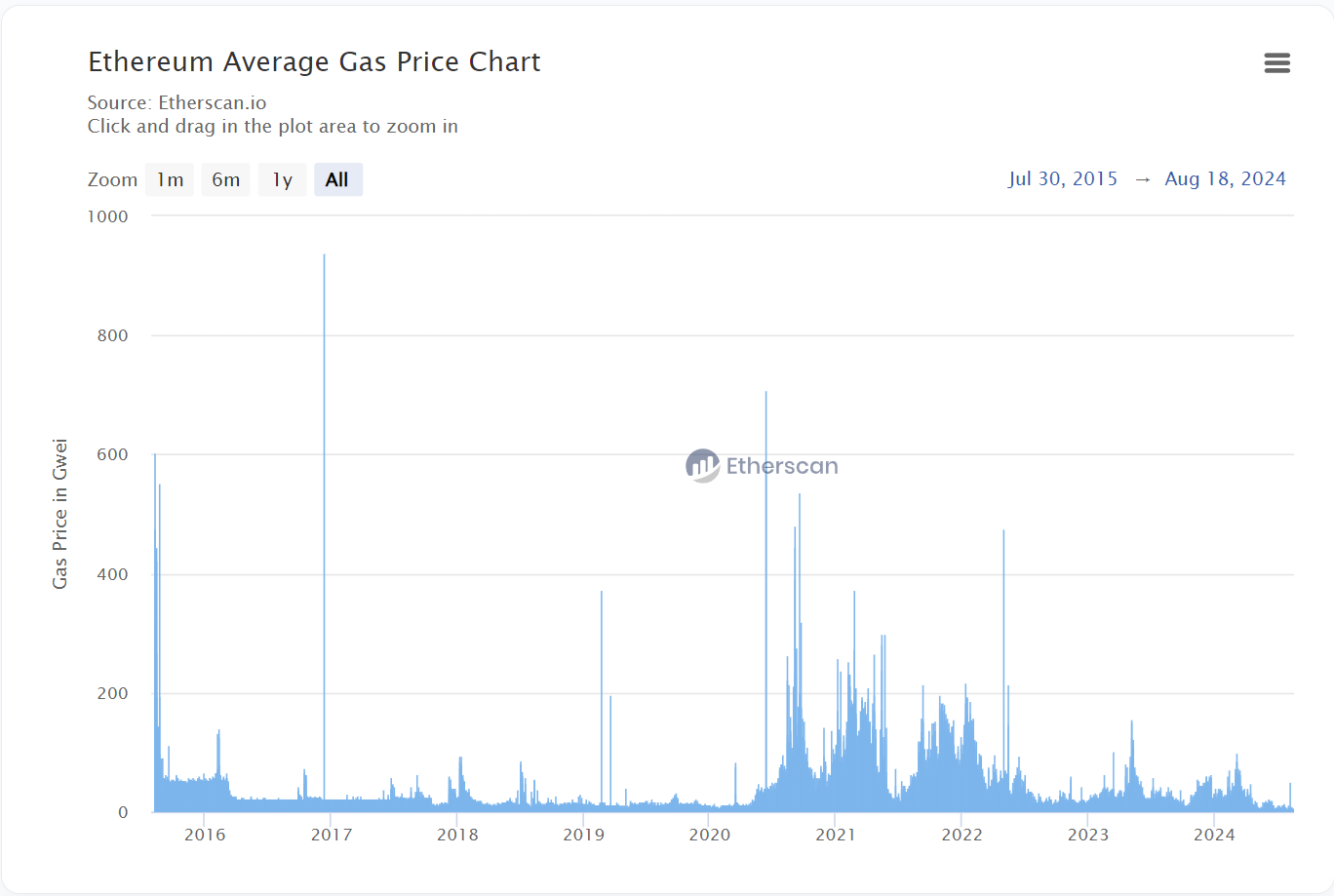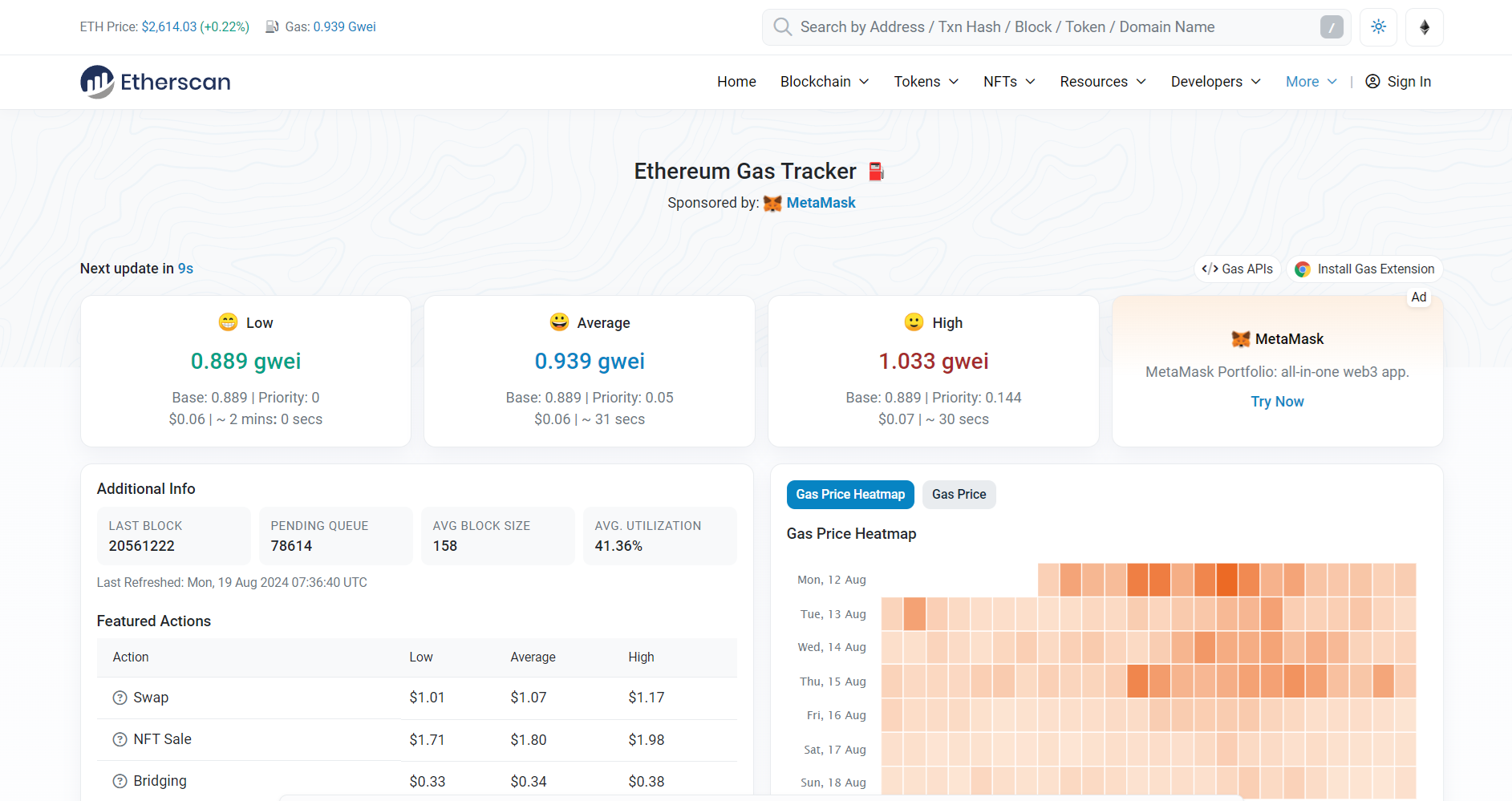2024-08-19


Ethereum’s gas fees have reached a
five-year low.
On August 11, 2024, low gas fees dropped to 1.38 Gwei.

On August 19, 2024, low gas fees dropped to 0.889 Gwei, lowest in the last 5 years.
There are several factors contributing
to gas fees drop:
1. Layer-2 networks
A lot of users choose layer-2 networks
that reduce the cost of transactions.
A shift in network activity from the
main Ethereum platform to Layer2 networks has also contributed to the lower gas
fees. This is because Layer2 networks process transactions separately and then
batch them to the main Ethereum blockchain.
2. The Dencun Upgrade
The recent Dencun upgrade, which
includes the “Cancun” upgrade of the execution layer and the “Deneb” upgrade on
the consensus layer, plays a crucial role.
It introduced “proto-danksharding”
(EIP-4844), which improves the blockchain’s ability to handle data layer-2
network.
3. Blob Transactions
The introduction of “blob transactions”
with EIP-4844 has significantly improved network scalability by allowing
temporary storage of data, which reduces the fees associated with data storage
on roll-ups.
These factors combined have led to a more efficient and cost-effective Ethereum network, which is reflected in the reduced gas fees.
It’s an interesting development that
could potentially signal bullish movements for Ether as trends show Ether’s
price increasing after such cycles.
In conclusion, Ethereum gas fee is hitting
a new low because of the development of layer-2 scaling solutions which there
are many today such as Arbitrum, Base, Scroll, and Optimism. These layer-2
support ETH token and other ERC-20 tokens.